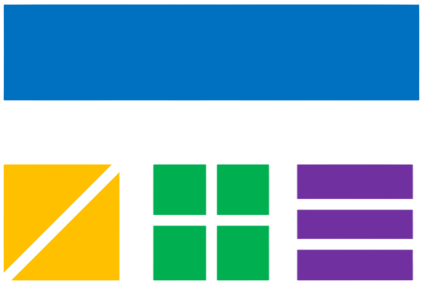Mortgage Payoff Calculator Information
What is Mortgage Payoff?
Mortgage Payoff Calculator is a free, easy-to-use tool that helps you estimate how much faster you can pay off your home loan and how much interest you can save by making extra payments. Enter your current loan details and see a detailed breakdown of your new payoff timeline and savings.
This calculator is ideal for homeowners who want to pay off their mortgage early, compare payoff strategies, or budget for extra payments. By visualizing your payoff acceleration and interest savings, you can make smarter financial decisions and reach debt freedom sooner.
How Mortgage Payoff Works
Your mortgage is an amortized loan, paid off in equal monthly installments over a set term (usually 15 or 30 years). Each payment covers interest and principal. Making extra payments—monthly, yearly, or one-time—directly reduces your principal, which lowers future interest and shortens your loan term.
- Principal: The remaining balance on your mortgage.
- Interest Rate: The annual rate charged by your lender.
- Term: The original length of your loan (e.g., 30 years).
- Amortization: The process of paying off the loan in equal installments.
- Extra Payment: Any additional amount paid toward principal, beyond your required payment.
- Prepayment Penalty: Fees some lenders charge for early payoff.
How Extra Payments Affect Your Loan
Extra payments reduce your principal faster, which means less interest accrues over time. This can significantly shorten your loan term and save you thousands in interest.
- Monthly Extra Payments: Add a fixed amount to each monthly payment.
- Annual Extra Payments: Make a lump sum once per year (e.g., from a bonus or tax refund).
- One-Time Payment: Make a single large payment at any time.
- Biweekly Payments: Make half your payment every two weeks (results in 13 full payments per year).
Example: $300,000 loan, 4% interest, 30 years, $200/month extra
Pay off your loan 6 years early and save $40,000 in interest
Strategies for Paying Off Your Mortgage Early
Effective Payoff Strategies
Payment Strategies
- Biweekly Payments: Half payment every 2 weeks
- Round Up Payments: Round to nearest $100
- Monthly Extra: Add fixed amount each month
- Annual Lump Sum: Use bonuses or tax refunds
- Automate Payments: Set up recurring transfers
Loan Strategies
- Refinance to Shorter Term: 15-year loans
- Refinance to Lower Rate: Reduce interest costs
- Recast Loan: Lower payments after large payment
- Remove PMI: Build 20% equity faster
- Consider ARM: Lower initial rates
Benefits of Early Mortgage Payoff
- Save on Interest: The sooner you pay down principal, the less interest you pay overall
- Build Equity Faster: More of your home is truly yours, sooner
- Financial Freedom: No mortgage means lower monthly expenses and more flexibility
- Peace of Mind: Owning your home outright provides security
- Retirement Planning: No mortgage payment in retirement
- Investment Opportunities: More money available for other investments
Considerations Before Early Payoff
Important Factors to Consider
Potential Drawbacks
- Prepayment Penalties: Some loans charge fees
- Lost Investment Returns: Money could earn more elsewhere
- Reduced Liquidity: Less cash available for emergencies
- Tax Implications: Mortgage interest may be tax-deductible
- Opportunity Cost: Could invest in higher-return assets
When to Prioritize
- High Interest Rate: Above 5-6%
- Near Retirement: Want to eliminate debt
- Low Investment Returns: Can't beat mortgage rate
- Risk Averse: Prefer guaranteed savings
- High Tax Bracket: Mortgage deduction less valuable
Mortgage Payoff vs. Investing
Comparing Payoff vs. Investment
The decision between paying off your mortgage early or investing depends on several factors:
- Investment Return = Expected annual return on investments
- Mortgage Rate = Your current mortgage interest rate
- Tax Rate = Your marginal tax rate (for interest deduction)
Example: 4% mortgage, 25% tax rate, 7% investment return
Investing could provide better returns
Frequently Asked Questions (FAQ)
Q: Can I pay off my mortgage early?
A: Yes, most mortgages allow early payoff, but check for prepayment penalties. Always confirm with your lender before making large extra payments.
Q: Should I pay off my mortgage or invest?
A: It depends on your financial goals, risk tolerance, and loan rate. Compare your mortgage rate to potential investment returns, considering taxes and risk.
Q: How do I make sure extra payments go to principal?
A: Specify with your lender that extra payments are for principal reduction, not future interest or escrow. Get written confirmation of how payments are applied.
Q: Is it better to refinance or make extra payments?
A: Refinancing can lower your rate or term, but extra payments are flexible and penalty-free (if allowed). Consider closing costs and your timeline.
Q: Can I make a lump sum payment at any time?
A: Usually yes, but always confirm with your lender and ask about any restrictions or fees. Some loans have limits on extra payments.
Important Disclaimers
Disclaimer: This calculator provides estimates for educational purposes only. Actual mortgage payoff results may vary based on your specific loan terms, lender policies, and payment application methods.
Always consult with your lender before making extra payments to confirm they will be applied to principal and to check for any prepayment penalties or restrictions.
Consider your overall financial situation, including emergency funds, retirement savings, and other debts, before prioritizing mortgage payoff. This calculator does not constitute financial advice.
